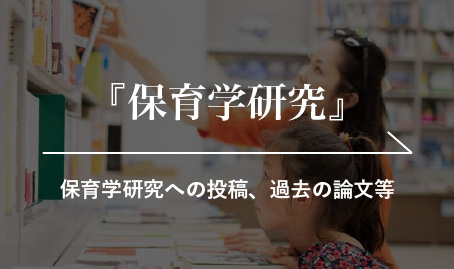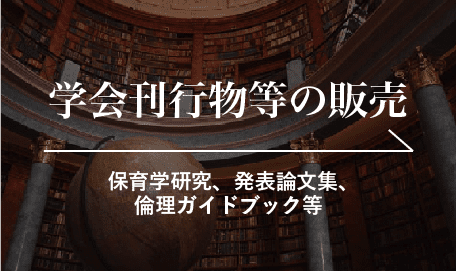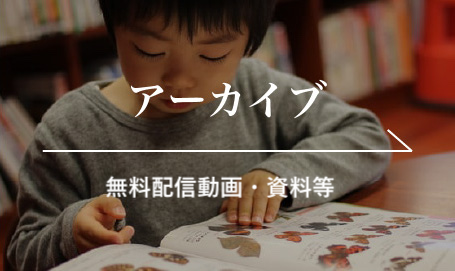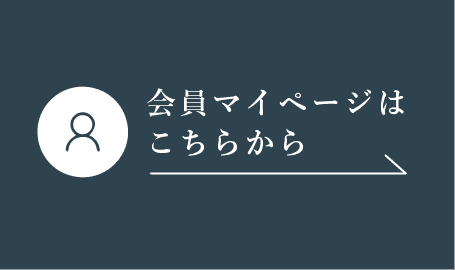< VOLUME 54, No.3>
Yamada Youko. The Support of the Early Childhood Education and Care Teachers, Who Protect the Child’s Best Interests in Daily Child Care.
Research on Early Childhood Care and Education in Japan, 2016, 54(3),231-241.
This study clarifies the role of Early Childhood Education and Care Teachers (ECECT) in protecting the best interests of children in day care. It considers six objectives for the development of children with special needs: 1) making the kindergarten the child’s own place, while building accepting relationships between the child and the ECECT; 2) creating a relationship of trust with the ECECT and nurturing them to be open-minded with others; 3) encouraging the child to think and act independently while respecting their pace; 4) supporting the child’s joy of sharing their feelings for their favorite things with other children; 5) supporting the child living in harmony as a member of a group and as an individual; and 6) working together with all ECECTs to improve collegiality.
Keywords: child’s best interests, acceptance relationship, trusting relationship, Early Childhood Education and Care Teachers’ collegiality
—————–
Yoshiko Mushiake and Toshiyuki Takahashi. A Case Study of a Child-Rearing Support for a Mother Considering Growth and Development of the Child in Kindergarten:the Acceptance Process of a Mother of a Child with Disabilities through Exchanging a Diary with a Teacher.
Research on Early Childhood Care and Education in Japan, 2016, 54(3), 242-253.
Through analyzing a year-long exchange diary between a kindergarten teacher and the mother of a disabled child, we report on how this process has helped the mother to accept positively her child’s disabilities. Quantitative analysis clarifies that the mother became positive in the first semester and the latter half of the second semester. The qualitative analysis shows that the following factors helped the mother to accept the child’s disabilities: 1) the formation of a good relationship with the parent-mentor; 2)the apparent development of the child; 3) a better understanding of the child and a good deal more positive engagement with the child’s behavioral issues; and 4) progress of nonverbal communication. Our study shows that support for a mother in the initial stage is very important to achieving positive outcomes.
Keywords: exchanging diary, mother, acceptance process of disabled child, kindergarten education, support
—————–
Reiko Shimazu. Collaborative Learning of Parents and Teachers in Early Childhood Education and Care :A Case Study of Parental Associations in Centers for Early Childhood Education and Care.
Research on Early Childhood Care and Education in Japan, 2016, 54(3), 254∸264.
The aim of this paper is to show clearly how collaborative learning works in the best interests of the child in a ‘Parental Association’ in centers for early childhood education and care. I used Rogoff ’s three concepts: guided participation, apprenticeship and participatory appropriation. These concepts reflect different focuses in sociocultural activities – interpersonal, community/institutional and personal.
I also conducted interviews with the center principal and ten parents. It became clear that 1) the views on child care and education were different between parents and teachers, and 2) parents and teachers try to understand and learn from each other. Finally, I created illustrative explanations of their collaborative learning by using the KJ method. Collaborative learning will be able to contribute to the support of effective learning.
Keywords: centers for early childhood education and care, parental association, Rogoff, collaborative learning, the best interests of the child
—————–









